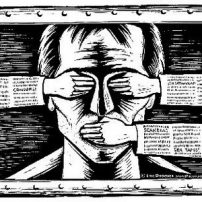
Freedom of expression of a journalist and non-use of quotation marks for re-published text
JUDGMENT
Milisavljević v. Serbia 04-04-2017 (no. 50123/06)
SUMMARY
Freedom of expression. Public person. Use of phrase without the use of quotation marks. Sentencing a journalist for a criminal offense was likely to prevent other journalists from contributing to public debate on issues that affect public life. The journalist had been convicted of using a phrase against a public figure previously published in an article by another author in a different magazine without the use of quotations, suggesting that he also embraced the content of that phrase. According to the ECtHR, the general obligation of journalists to systematically and formally distance themselves from the content of a referral that could offend or induce others or damage the reputation does not go hand in hand with the role of the press in providing information on current events , views and ideas.
The Court held that her conviction was disproportionate to Article 10 (Freedom of Expression) of the European Convention on Human Rights.
PROVISION
Artricle 10
PRINCIPAL FACTS
The applicant, Ljiljana Milisavljević, is a Serbian national who was born in 1966 and lives in Belgrade. She was a journalist for Politika, a major Serbian daily newspaper.
The article in question was published in Politika in September 2003 at a time when there was a heated public debate on the Serbian authorities’ cooperation with the International Criminal
Tribunal for the former Yugoslavia (the “ICTY”). There was also a high degree of animosity toward Ms Kandić because of her involvement in investigating crimes committed by the Serbian forces
during the armed conflicts in the former Yugoslavia and because she was one of the most vocal advocates for full cooperation with the ICTY.
Following the publication, Ms Kandić started a private prosecution against Ms Milisavljević claiming that it had been written to portray her as a traitor to Serbia. The domestic courts ultimately found that Ms Milisavljević had committed the criminal offence of insult and gave her a judicial warning. The courts notably held that although the sentence, “Ms Kandić [had] been called a witch and a prostitute”, had been published previously in an article written by another author in a different magazine, she had failed to put it in quotation marks, meaning that she had tacitly endorsed the words as her own.
THE DECISION OF THE COURT
It was established in the domestic proceedings, and acknowledged by the Government, that Ms Milisavljević had taken the words “Ms Kandić [had] been called a witch and a prostitute” from an
article written by another journalist and published in a different magazine. Therefore, it was evident, even without the quotation marks, that this was not Ms Milisavljević’s personal opinion of
Ms Kandić, but that she had merely been transmitting how Ms Kandić was perceived by others. The Court reiterated that a general requirement for journalists to systematically and formally distance themselves from the content of a quotation that might insult or provoke others or damage their reputation was not reconcilable with the press’s role of providing information on current events, opinions and ideas.
Furthermore, the domestic courts had completely failed to balance Ms Kandić’s right to reputation against Ms Milisavljević’s freedom of expression and duty, as a journalist, to impart information of general interest. The courts, limiting their findings to the fact that the sentence had not been put in quotation marks, had not referred at all to the overall context of the article or the circumstances in which it had been written. In contrast, Ms Milisavljević had presented the positive and negative in her article, making it clear that opinions on Ms Kandić were divided. Furthermore, she had reported that Ms Kandić had received many awards, some of them prestigious, as well as that she was a campaigner for the truth on war crimes and a lonely voice of reason in Serbia, all of this having also been written without quotation marks.
Lastly, the Court also bore in mind that: Ms Kandić, a human rights activist and public figure, had inevitably and knowingly exposed herself to public scrutiny and therefore had to display a greater
degree of tolerance; and her conviction of a criminal offence was likely to deter other journalists from contributing to public discussion on issues affecting the life of the community.
The national authorities’ reaction to Ms Milisavljević’s article had therefore been disproportionate, in violation of Article 10.
Just satisfaction (Article 41)
The Court held that Serbia was to pay Ms Milisavljević 500 euros (EUR) in respect of non-pecuniary damage and EUR 386 for costs and expenses.


